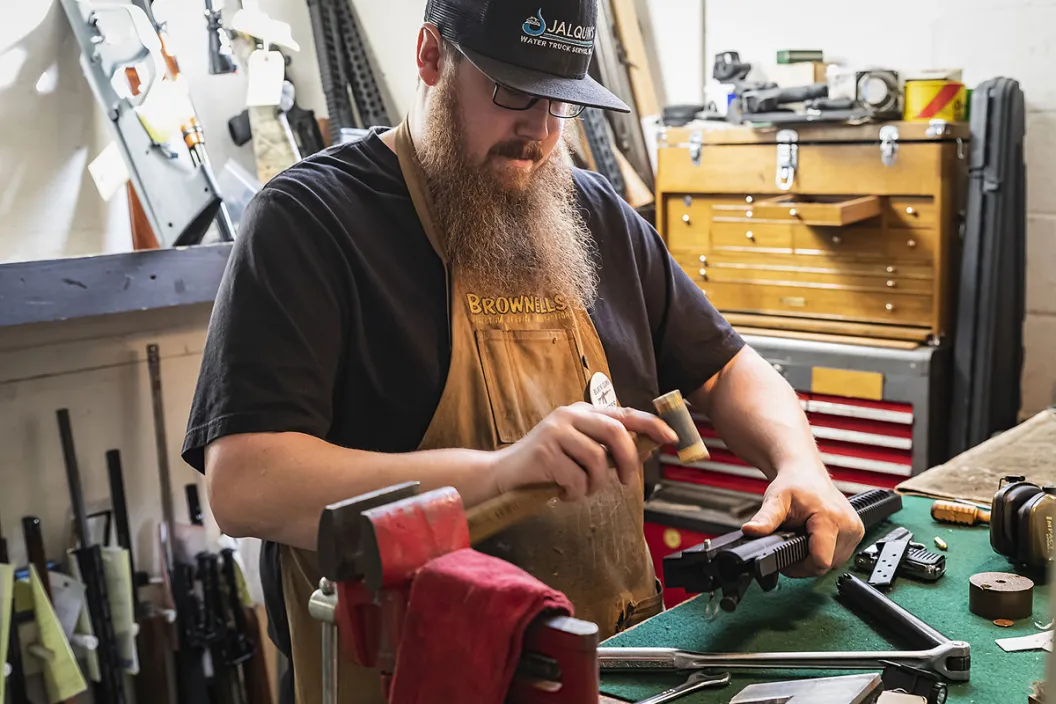Entering a gunsmithing school is an exciting endeavor for anyone passionate about firearms and craftsmanship. However, understanding what to expect from the coursework is crucial for prospective students. From foundational knowledge to specialized skills, the curriculum of a gunsmithing school plays a pivotal role in shaping future professionals in the field. In this article, we’ll delve into the essential components of a typical gunsmithing school’s coursework, providing insights for those considering this educational path.
Foundational Studies
There is a strong foundation in firearm fundamentals that is at the heart of each professional gunsmithing program. A variety of subjects, including anatomy, functionality, and firearm safety, will be covered in the necessary education for students. It is vital to acquaint oneself with the workings of a variety of firearms, ranging from handguns to rifles. The students also learn about the fundamentals of ballistics, which include how parameters such as bullet weight, velocity, and trajectory influence the performance of firearms.
Machine Shop Skills
Machining techniques make up a large amount of a curriculum at gun smith schools. Students gain knowledge on how to use and maintain a wide range of equipment and instruments that are frequently used in gunsmithing, including drill presses, milling machines, and lathes. For jobs like producing parts, fixing damaged firearms, and modifying firearm components, machining proficiency is a must. Students can refine their abilities under the supervision of knowledgeable professors through practical practice in a machine shop setting.
Customization And Modification
One of the most exciting aspects of gunsmithing is the ability to customize firearms to suit individual preferences and needs. Courses focusing on customization and modification cover topics like stock fitting, barrel threading, and sight installation. Students learn techniques for enhancing firearm aesthetics, ergonomics, and performance. Whether it’s creating a personalized hunting rifle or a competition-ready handgun, these courses provide students with the skills to turn concepts into reality.
Firearms Repair And Maintenance
A crucial part of a gunsmith’s job is repairing and maintaining firearms. Coursework in this area equips students with the knowledge and skills needed to diagnose common issues and perform necessary repairs. From fixing malfunctions to replacing worn-out components, students learn practical techniques to keep firearms in optimal condition. Additionally, students explore preventive maintenance strategies to prolong the lifespan of firearms and ensure their safe and reliable operation.
Metalworking And Finishing Techniques
Achieving a professional finish is essential for any gunsmithing project. Courses focusing on metalworking and finishing teach students various techniques for shaping, polishing, and refinishing metal surfaces. Whether it’s applying bluing or cerakote coatings or engraving intricate designs, students develop the skills needed to add aesthetic appeal and durability to firearms. Attention to detail and precision are emphasized as students strive to master the art of metalworking.
Business And Legal Aspects
Beyond technical skills, gunsmithing programs often include coursework on the business and legal aspects of the profession. Students learn about federal and state regulations governing firearms, ensuring compliance with relevant laws and regulations. Additionally, topics like customer service, pricing, and marketing are covered to prepare students for entrepreneurial endeavors or employment in the industry. Understanding the business side of gunsmithing is essential for success in a competitive market.
Conclusion
The curriculum of a gunsmithing program is diverse and combines theoretical knowledge with practical skills to prepare students for careers within the firearms industry. Students are equipped with the knowledge and skills to excel in their chosen fields. The exposure to legal and business aspects will ensure that graduates are well-rounded professionals who can navigate the complexity of the industry. With confidence, aspiring gunsmiths can begin their education journey knowing they will gain the necessary tools and knowledge for pursuing their passion for firearms craftsmanship.








